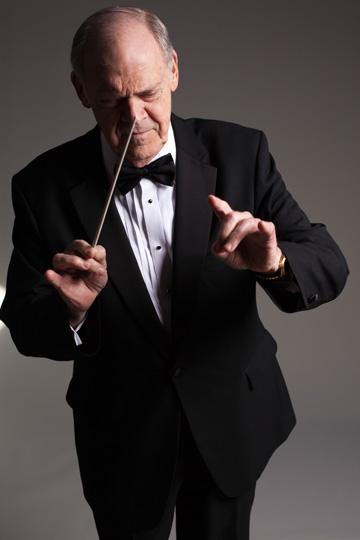When Norman Scribner picks up the baton to conduct the Choral Arts Society of Washington and the National Symphony Orchestra to perform Johannes Brahms’s monumental “Ein Deutches Requiem” on April 22, at 4 p.m. in the Kennedy Center’s Concert Hall, it will be a milestone for the maestro, the Washington Choral Arts Society and the city.
Conducting the “Requiem” marks the last time that Scribner, the founder of the Washington Choral Arts Society, will conduct the WCAS as its artistic director, his last concert in a distinguished 47-year career that has left its mark on Washington culture and what you can achieve with the art of music.
Scribner is going out with one of the greatest compositions in Western classical music.
It’s best to let Scribner explain it: “’Ein Deutches Requiem is one of the most glorious and beloved examples of the combination of text and music in the history of Western civilization,” Scribner said. “Through his lifelong immersion in the Lutheran Bible, Brahms was able to extract texts that express every emotion connected with our passage from this life to the next.”
It seems a fitting ending kind of project for Scribner, who created the Choral Arts Society of Washington and turned it into an enduring cultural institution in Washington, where it became a part of the life of the city every bit as much as the National Symphony Orchestra, the Washington National Opera or the Washington Ballet.
Scribner’s work and career stretches into the city’s universities and into the city’s cultural history. He attended the prestigious Peabody Conservatory and has taught at George Washington University, American University and the College of Church Musicians at Washington National Cathedral.
Over the years, he has taken inspiration from and collaborated with giant figures in contemporary musical history as Leonard Bernstein, Leonard Slatkin, Valery Gorgiev, Mstislav Rostropovich and Christopher Eschenbach, the current maestro of the NSO.
He has led the chorus in 18 recordings, and presented 25 world premiere commissions and has received an honorary doctorate from the Virginia Theological Seminary in 2002 and from the Peabody Distinguished Alumni Award in 2006.
Scribner has scores of musical inspirations—the giants of Western music like Mozart, Brahms, Bach and Beethoven—are in his blood. But there’s a figure—not a composer of great works, but a mover of hearts and minds through the power of his words and oratory—who has also inspired Scribner’s life and career.
That would be the Rev. Martin Luther King, Jr. “If you lived or witnessed anything that was going on in this city in the 1960s—the great speech at the Lincoln Memorial, the tragedy of the riots in the wake of his assassinations—then you cannot be help but to have been moved by his presence, by his life and death.”
Scribner was more than merely moved emotionally. He was moved to action through the world of his musical efforts. Scribner created the annual “Living the Dream, Singing the Dream,” an annual choral tribute to King on his January birthday at the Kennedy Center choral celebration, and collaborated with the Washington Performing Arts Society’s Men, Women and Children of the Gospel Choir under artistic director Stanley J. Thurston.
The annual Martin Luther King, Jr., Tribute Concert has become a Washington institution.
“I wanted to pay tribute to Dr. King’s legacy through music, in other words, music used as an instrument for peace,” Scribner said.
Scribner doesn’t believe that music, however beautiful and grand, exists in a vacuum. Rather, it is a part of the whole community. He has lived that belief with not only the creation of the tribute concerts but their expansion into a series of community musical and civil rights efforts.
“Music can be a balm, a celebration and a unifier,” he said. “That’s the hope.”
Scribner witnessed the chaos, the fiery violence that erupted here in Washington in the wake of King’s assassination. Scribner’s response was to honor King with the balm of music and celebration. He orchestrated and integrated a community-based celebration called “Once-In Memoriam: Dr. Martin Luther King, Jr.” the year after King died.
The Choral Arts Society has expanded the scope of the concert to include a concert for students, a student writing competition and the establishment of an annual humanitarian award. This past year, Scribner himself was named the recipient of the Humanitarian Award, joining a select group that includes Dorothy Height, Rep. John Lewis (D-Ga.), Marian Wright Edelman, Harris Wofford, Julian Bond, John Doar, Charlayne Hunter-Gault and Bernice Johnson Reagan.
Scribner’s last concert will be co-presented with the Washington Performing Arts Society. “WPAS is pleased to be co-presenting the last concert to be conducted by Washington’s legendary choral leader Norman Scribner,” said Neal Perl, WPAS president and CEO. “A pillar of Washington’s musical community for the past 47 years, Norman has devoted his life to the performance of glorious choral music. He will be greatly missed.”
Missed, but not forgotten.


